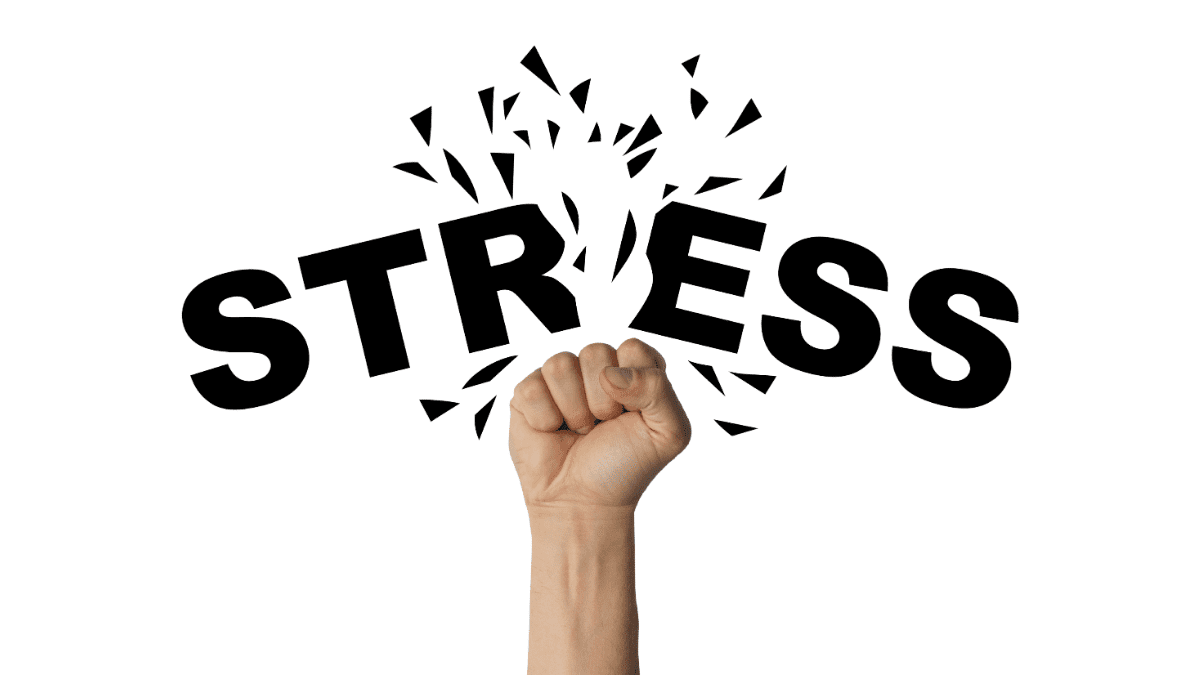Understanding the Impact of Stress and the Need for Effective Management Techniques
In today’s fast-paced and demanding world, stress has become an inevitable part of our lives. Whether it’s due to work pressures, personal challenges, or the constant hustle and bustle of daily life, stress can have a significant impact on our overall well-being. Understanding the effects of stress and finding effective management techniques is crucial for maintaining a balanced and healthy lifestyle.
The impact of stress on our physical and mental health cannot be underestimated. Prolonged exposure to stress can lead to a range of negative consequences such as increased risk of chronic diseases, weakened immune system, sleep disturbances, anxiety, and depression. It is essential to recognize the signs and symptoms of stress in order to address them proactively.
Fortunately, there are various techniques available for managing and relieving stress. From relaxation exercises such as deep breathing, meditation, and yoga to engaging in physical activities like exercise or hobbies that bring joy, there are numerous ways to cope with stress effectively. Additionally, adopting healthy lifestyle habits including proper nutrition, adequate sleep, and maintaining social connections can significantly contribute to a stress-free life.
In this section, we will explore the impact of stress on our well-being and delve into different strategies for managing it effectively. By understanding the importance of stress management techniques and implementing them into our daily lives, we can navigate through challenging times with resilience while striving for a healthier and happier future.
Table of Contents
Identifying the Signs and Symptoms of Stress: How to Recognize When You’re Stressed
Recognizing the signs and symptoms of stress is crucial in maintaining our overall well-being. Stress can manifest itself in various ways, both physically and emotionally. By understanding the indicators of stress, we can take proactive steps to manage it effectively.
Physical effects are often the most noticeable signs of stress. These may include headaches, muscle tension, fatigue, changes in appetite or sleep patterns, and frequent illnesses due to a weakened immune system. Paying attention to these physical cues can help us identify when stress is taking a toll on our bodies.
Emotional symptoms are equally important to recognize. Feeling overwhelmed, irritable, anxious, or experiencing mood swings are common indicators of high levels of stress. Additionally, difficulty concentrating or making decisions may arise when stress becomes overwhelming.
It’s important to note that everyone may experience different signs and symptoms of stress. Some individuals may have more pronounced physical effects while others may exhibit primarily emotional symptoms. Being aware of how your body and mind respond to stress is key in identifying when you’re feeling overwhelmed.
By recognizing these signs early on, we can take appropriate measures to reduce stress levels and improve our overall well-being. This may involve practicing relaxation techniques such as deep breathing exercises or engaging in activities that promote self-care and mindfulness.
Remember that seeking support from friends, family members, or professionals is always an option if you find yourself struggling with chronic or excessive levels of stress. Prioritizing self-care and addressing the root causes of your stress will contribute to a healthier and more balanced lifestyle.
The Importance of Self-Care in Stress Management: Taking Care of Your Mind and Body
In today’s fast-paced and demanding world, stress has become a common part of our lives. It is crucial to recognize the importance of self-care in managing stress effectively. Self-care refers to the deliberate actions we take to prioritize our mental and physical well-being.
One of the key aspects of self-care is incorporating self-care techniques into our daily routines. These techniques can vary from person to person, but they often involve activities that promote relaxation, mindfulness, and rejuvenation. Examples include meditation, deep breathing exercises, journaling, engaging in hobbies or creative outlets, and practicing gratitude.
Taking a holistic approach to managing stress is also essential. This involves addressing both the mind and body. Engaging in regular exercise not only benefits physical health but also releases endorphins that boost mood and reduce stress levels. Additionally, getting enough sleep is crucial for optimal mental functioning and emotional well-being.
Mental well-being should not be overlooked when it comes to self-care. It is important to prioritize activities that promote mental wellness such as seeking support from loved ones or professionals when needed, setting boundaries with work or social commitments, practicing positive affirmations or visualization techniques, and engaging in activities that bring joy or relaxation.
By incorporating self-care activities into our daily lives and adopting a holistic approach to managing stress, we can better equip ourselves with the tools necessary for maintaining overall well-being. Taking care of our mind and body not only helps us manage stress but also promotes resilience and enhances our ability to cope with life’s challenges effectively.
Practical Stress Management Techniques You Can Implement Today:
1. Meditation and Mindfulness: Cultivating a Calm and Present Mindset

In today’s fast-paced and often chaotic world, many individuals are turning to meditation and mindfulness practices as a means of finding inner peace and cultivating a calm and present mindset. Meditation, a practice rooted in ancient traditions, involves training the mind to focus and redirect thoughts while mindfulness encourages being fully aware of the present moment without judgment. Together, these practices offer numerous benefits for mental, emotional, and even physical well-being. This introduction will explore the principles behind meditation and mindfulness, their effects on the mind and body, as well as provide practical techniques for incorporating them into daily life.
2. Exercise and Physical Activity: Channeling Stress into Healthy Movement
Exercise and physical activity play a crucial role in maintaining overall health and well-being. In addition to their physical benefits, they can also be effective tools for managing stress. When we experience stress, our bodies release hormones that can have negative effects on both our mental and physical health. Engaging in regular exercise helps counteract these effects by promoting the release of endorphins, which are natural mood enhancers.
One of the ways exercise helps manage stress is by providing a healthy outlet for pent-up energy and emotions. Physical activity allows us to channel our stress into movement, whether it’s through running, dancing, or practicing yoga. This not only helps us release tension but also provides a distraction from the sources of our stress.
Moreover, engaging in exercise promotes better sleep quality. Many individuals who deal with stress often struggle with sleep problems such as insomnia or restless nights. Regular exercise can help regulate sleep patterns, allowing for more restful and rejuvenating sleep.
Another benefit of exercise in managing stress is its ability to improve cognitive function. Physical activity increases blood flow to the brain, delivering oxygen and nutrients that support optimal brain function. This can enhance our ability to think clearly and effectively problem-solve when faced with stressful situations.
Furthermore, participating in group exercises or team sports provides an opportunity for social interaction and support. Connecting with others who share similar goals or interests can provide a sense of belongingness and reduce feelings of isolation or loneliness associated with stress.
Incorporating regular exercise into your routine doesn’t have to be complicated or time-consuming. Even short bursts of physical activity throughout the day can have a positive impact on your overall well-being. Whether it’s taking a walk during your lunch break or practicing some gentle stretching before bed, finding activities that you enjoy will make it easier to stick with them in the long run.
The exercise serves as an effective method for managing stress by releasing endorphins, providing an outlet for pent-up emotions, promoting better sleep, enhancing cognitive function, and fostering social connections. By incorporating physical activity into your daily routine, you can channel stress into healthy movement and improve both your mental and physical health.
3. Breathing Exercises: Harnessing the Power of Deep Breaths to Relax the Body and Mind

Breathing exercises have long been recognized as powerful tools for relaxation and stress reduction. By harnessing the power of deep breaths, individuals can effectively calm both their body and mind. These exercises involve intentional and controlled breathing patterns that can be practiced anywhere, anytime. In this introduction, we will explore the benefits of breathing exercises and how they can help individuals achieve a state of relaxation and mental clarity.
4. Journaling and Expressive Writing: Unleashing Emotions Through Words on Paper
Journaling and expressive writing have long been recognized as powerful tools for emotional release and self-expression. By putting our thoughts and feelings onto paper, we can explore our innermost emotions, gain clarity, and find healing. In this article, we will delve into the benefits of journaling and expressive writing, how they can be incorporated into daily life, and tips for getting started on this transformative journey of self-discovery. Whether you are seeking a creative outlet or a therapeutic practice, journaling and expressive writing offer a safe space to unleash your emotions through words on paper.
5. Social Support Systems: Building Strong Relationships for Emotional Support
In today’s fast-paced and interconnected world, social support systems play a crucial role in building and maintaining strong relationships for emotional support. These systems encompass various networks, both online and offline, that provide individuals with a sense of belonging, understanding, and comfort during challenging times.
One of the key benefits of social support systems is their ability to offer emotional validation. When facing difficult situations or experiencing intense emotions, having someone who can empathize and validate those feelings can be incredibly comforting. Social support systems provide a safe space where individuals can express themselves without fear of judgment or rejection.
Furthermore, these systems offer practical assistance in times of need. Whether it’s lending a helping hand during a crisis or providing advice and guidance on personal matters, social support networks can be invaluable sources of information and resources. They allow individuals to tap into the collective wisdom and experiences of others who have faced similar challenges.
Another important aspect of social support systems is their role in fostering personal growth and development. Through meaningful connections with others, individuals can gain new perspectives, learn from different experiences, and expand their horizons. This exposure to diverse ideas and opinions enhances self-awareness and promotes personal growth.
Moreover, social support networks contribute to overall well-being by reducing stress levels. Sharing burdens with trusted friends or family members helps alleviate emotional distress by providing an outlet for venting frustrations or anxieties. By offering encouragement and reassurance, these networks help individuals build resilience in the face of adversity.
In recent years, online platforms have played an increasingly significant role in creating virtual communities that provide emotional support. From online forums dedicated to specific topics to social media groups centered around shared interests or experiences, these platforms offer opportunities for people from all walks of life to connect with one another.
The social support systems are instrumental in establishing strong relationships that provide emotional solace during challenging times. They offer validation for our emotions while also providing practical assistance when needed most. By fostering personal growth, reducing stress levels, and creating virtual communities, these networks prove to be invaluable resources in today’s interconnected world.
6. Time Management Strategies: Organizing Your Life to Reduce Overwhelm
In today’s fast-paced world, finding effective time management strategies is crucial to maintaining a balanced and productive life. Feeling overwhelmed by the numerous tasks and responsibilities can lead to stress, burnout, and a decrease in overall well-being. Fortunately, there are proven techniques that can help you organize your life and reduce overwhelm. By implementing these strategies, you can regain control of your time and achieve a greater sense of balance in both your personal and professional life.
7. Healthy Lifestyle Choices: Nutrition, Sleep, and Relaxation Techniques for Overall Well-being
Maintaining a healthy lifestyle is crucial for our overall well-being. It encompasses various aspects, including nutrition, sleep, and relaxation techniques. By making informed choices in these areas, we can improve our physical and mental health.

Nutrition plays a key role in promoting a healthy lifestyle. Consuming a balanced diet that includes fruits, vegetables, whole grains, lean proteins, and healthy fats provides the necessary nutrients for our body to function optimally. It is important to limit the intake of processed foods high in sugar, salt, and unhealthy fats as they can negatively impact our health.
Another vital aspect of a healthy lifestyle is getting adequate sleep. Quality sleep allows our body to repair and rejuvenate itself. Lack of proper sleep can lead to various health issues such as fatigue, decreased cognitive function, weakened immune system, and increased risk of chronic diseases. Establishing a consistent sleep schedule and creating a relaxing bedtime routine can greatly improve the quality of our sleep.
In addition to nutrition and sleep, incorporating relaxation techniques into our daily routine is essential for overall well-being. Stress has become an inevitable part of modern life; however managing stress is crucial for maintaining good health. Engaging in activities such as meditation, deep breathing exercises, yoga or tai chi can help reduce stress levels and promote relaxation.
By making conscious choices regarding nutrition, prioritizing sufficient sleep time and embracing relaxation techniques into our daily routine we can significantly improve our overall well-being. Taking care of ourselves through these practices not only enhances physical health but also contributes positively to mental clarity and emotional balance
Tips for Incorporating Stress Management Techniques into Your Daily Routine:
Daily practice tips for managing stress effectively; making time for self-care; creating a supportive environment; consistency is key;
Incorporating stress management techniques into your daily routine is crucial for maintaining a healthy and balanced lifestyle. By making time for self-care and creating a supportive environment, you can effectively manage stress and improve your overall well-being.

Consistency is key when it comes to managing stress. Establishing a daily practice of stress management techniques will help you build resilience and cope with everyday challenges. Here are some tips to help you incorporate these techniques into your daily routine:
- Prioritize self-care: Make time for activities that bring you joy and relaxation, such as exercise, meditation, or hobbies. Taking care of yourself physically and mentally will help reduce stress levels.
- Create a supportive environment: Surround yourself with positive influences and people who uplift you. Avoid toxic relationships or environments that contribute to your stress levels.
- Practice mindfulness: Incorporate mindfulness techniques into your day, such as deep breathing exercises or mindful eating. Being present in the moment can help alleviate stress and promote a sense of calm.
- Set boundaries: Learn to say no when necessary and establish boundaries in both personal and professional relationships. Overcommitting yourself can lead to increased stress levels.
- Seek support: Don’t hesitate to reach out for support from friends, family, or professionals if needed. Sharing your feelings with others can provide perspective and guidance during stressful times.
Remember, managing stress is an ongoing process that requires dedication and consistency. By incorporating these tips into your daily routine, you can effectively manage stress levels and improve your overall well-being
Seeking Professional Help: When to Consider Therapy or Counseling for Stress Management
When it comes to managing stress, seeking professional help through therapy or counseling can be a valuable resource. Therapy and counseling provide individuals with a safe and supportive space to explore and address the underlying causes of their stress, as well as develop effective coping strategies.
If you find that your stress levels are consistently high, impacting your daily functioning, relationships, or overall well-being, it may be time to consider therapy or counseling. These professionals are trained to help individuals navigate through difficult emotions and situations, providing guidance and support along the way.
Therapy for stress management involves working with a licensed therapist who can help you identify triggers, understand patterns of behavior or thought that contribute to stress, and develop healthier ways of managing stress. Counseling for stress focuses on providing emotional support and guidance in dealing with specific challenges related to stress.
Professional help for stress management is particularly important when symptoms of stress start affecting your mental health. It’s essential to recognize that seeking therapy or counseling does not indicate weakness but rather demonstrates a proactive approach towards taking care of your mental well-being.
Remember that everyone’s journey is unique, so there is no shame in reaching out for support when needed. Therapy or counseling can provide you with the tools necessary to effectively manage your stress levels and improve your overall quality of life.
Taking Control of Your Stress Levels and Living a Balanced Life
In conclusion, managing stress effectively is crucial for achieving a balanced and stress-free life. By taking control of our stress levels, we can improve our overall well-being and enhance our quality of life.

It is important to recognize the signs of stress and implement strategies to reduce its impact. This may include practicing relaxation techniques such as deep breathing exercises, meditation, or engaging in physical activities like yoga or exercise. Additionally, finding healthy ways to cope with stress such as maintaining a balanced diet, getting enough sleep, and seeking support from friends or professionals can greatly contribute to living a more balanced life.
Creating boundaries and setting priorities is also essential in managing stress. Learning to say no when necessary and delegating tasks can help alleviate overwhelming feelings. It is important to remember that it is okay to prioritize self-care and make time for activities that bring joy and relaxation.
By taking proactive steps towards managing stress effectively, we can cultivate a lifestyle that promotes wellness and balance. Remember that everyone’s journey towards a stress-free life will be unique, so it’s important to find what works best for you. With dedication and perseverance, you can achieve a state of equilibrium where you are able to navigate life’s challenges with resilience while maintaining your overall well-being.
Also Read: Unleash Your Potential: The Beginner’s Guide To An Active And Fit Lifestyle


1 thought on “Effective Stress Management Techniques: A Complete Guide for a Balanced and Stress-free Life”